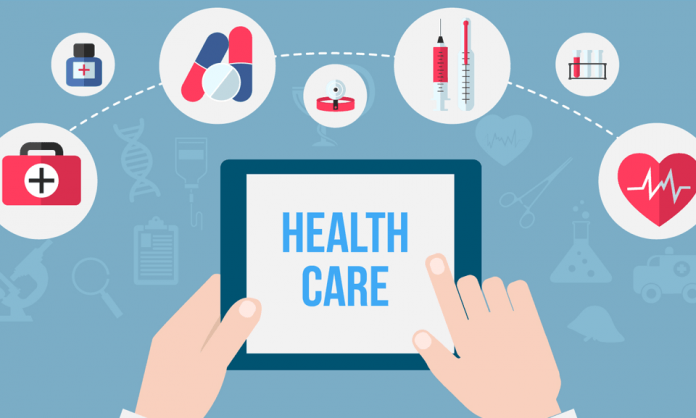Artificial intelligence! Machine learning! A new culture of innovation has taken root in today’s medical society. What was once thought to be the stuff of fictional movies and films is today a reality. The medical industry is going through a revolution of sorts and startups alongside the medical devices that they produce are at the helm of it all.
Developing healthcare devices has never been a walk in the park. Not only is it time-consuming, but startups are typically put through a series of rigorous procedures (as they should be) before a device is approved for sale in the market. And even after years of research, some startups and their offerings sometimes end up stuck in years of testing; their products never securing the regulatory go-ahead needed from the drug authorities.
Funding has always been a huge problem in the field, with most startups only being able to remain operational by way of grants. Unfortunately, not many investors are keen on braving the high risk and long gestational periods associated with med tech. Despite this resistance, however, the supporting medical bio-network has shifted rapidly in the last decade or so, which has given medical startups a much-needed push.
Today, medical devices run the gamut from low-tech single-use gadgets such as the wooden sticks used in medical exams to high-end tech such as synthetic DNA designed to be utilized for research purposes. So, how then, is this billion-dollar industry that is currently growing at an exceedingly rapid rate, disrupting the industry in 2020?
Portable and wearable gadgets are transforming healthcare
Medical devices have become so widely available that they are now considered vital elements of the cultural zeitgeist. Today’s popular medical devices are mostly portable and wearable owing to innovations in miniaturization as well as the use of wireless technology. Medical devices cover an array of product types from smart clothing, watches to activity monitors and easy to wear patches.
Most of these gadgets are designed to optimize the patient-doctor relationship, which goes a long way in incentivizing patient loyalty. The result is reduced hospital readmissions that have been caused by recklessness or poor management, which in turn frees up professionals while saving the field of healthcare thousands of dollars.
A series of primary players are now joining the med-tech field including industrial manufacturing giants such as Siemens. Medical devices are being used for an ever-expanding variety of uses in healthcare. But whether they are being used for therapeutic treatments or diagnostic monitoring, it is evident that these devices, on many occasions are life-changing.
Startups are now targeting niche problems
Startups are now choosing to tackle highly niche issues that have previously been disregarded by global medical giants. Though niche issues typically take longer to find solutions, targeting largely unnoticed issues such as incontinence, for example, opens startups to budding huge markets that have been left untapped for many years.
The main objective for startups that take on these daring challenges is to pass the penultimate step, which is usually to secure regulatory approval before taking their products to market. As funding continues to open up and as the peer community continues to become more accepting of such brave ventures, space will continue to widen for new entrants.
Research and development will start being outsourced
In a bid to retain a competitive advantage in a market that is quickly becoming saturated, startups will begin outsourcing conventional research and management strategies to smaller tech firms and medical software developers.
Seeking outside assistance with research and development will go a long way in helping to minimize risk as well as reduce the time it takes products to enter the market. Outsourcing will prove extremely beneficial to medical startups that do not necessarily have access to funds that allow the development of an invention from the ideation stages to commercialization.
Unlikely partnerships will have be formed in future
Big tech organizations such as Amazon, Apple and Google will soon join the fray in an attempt to join the burgeoning digital health industry. Because these tech giants often find it hard to convert ideas into successful medical gadgets, partnerships will have to be formed with successful medical manufacturers that have experience in the field.
These partnerships will help to meet the growing demand for smart gadgets. It will also help to smoothen the research and development phase so that healthcare delivery can improve. In the end, these joint ventures will help to create a collaborative marketplace that will see an even higher number of tech-based innovations being released in 2020.
Rural medicine is getting a facelift
Although startups are growing by leaps and bounds, many of them usually direct their focus to international markets, which often leaves many rural populations overlooked. For several reasons that are primarily economic, rural and semi-rural areas have always been at the bottom of the list when it comes to innovations. But some startups are stepping up to change all that.
Some startups are making their medical devices more accessible to users in far away localities, and if this continues, it will naturally cause healthcare prices to drop owing to increased competition. When startups are able to conquer this largely unexploited market to become flourishing and successful, then modern healthcare can be enjoyed by all. As superior healthcare delivery continues to penetrate all corners of the world, accessibility and patient satisfaction will be improved.
A stronger healthcare ecosystem
Medical devices by startups are playing a crucial role in making the healthcare ecosystem stronger. As a result, screening has improved dramatically, as well as the diagnosis and treatment of various diseases. New technologies that allow minimally invasive surgeries have worked to enhance the precision and complexity of medical procedures.
Further expansions in surgical equipment have enabled physicians to carry out complicated and intricate surgeries as well as solve critical cases. Primary healthcare centers have also seen an improvement in their point of care services and diagnostics thanks to the use of portable devices.
Previously out-of-the-way procedures like bariatric surgeries have also become more widespread as a result of new technology. Consequently, this will work to create a stronger healthcare system in today’s contemporary society.
Final thoughts
Today’s healthcare advancement and start-up networks have seen some tremendous transformations. Startups need the right infrastructural support in the shape of both medical and tech mentors, easy access to labs, as well as regulatory inputs so that they can remain sustainable and continue to scale commercially.









